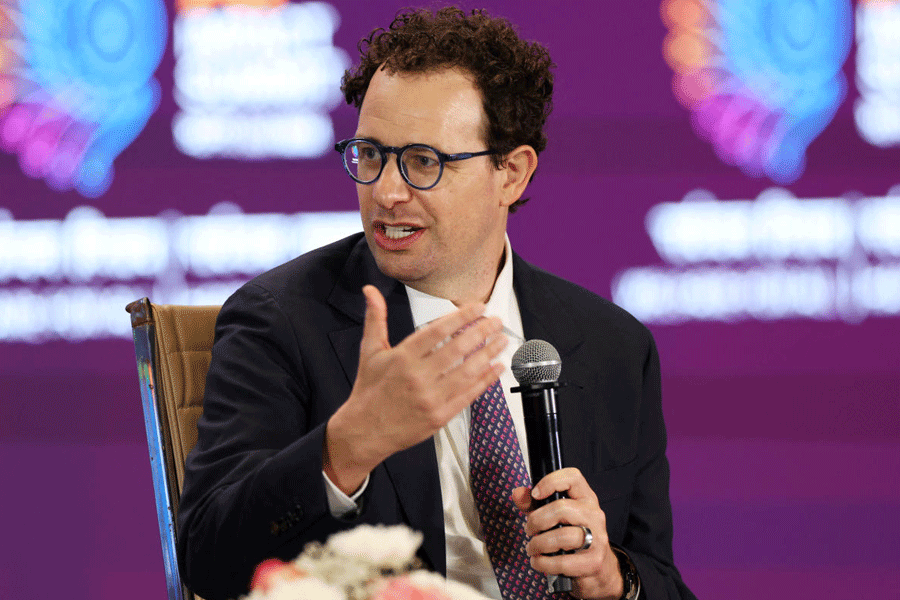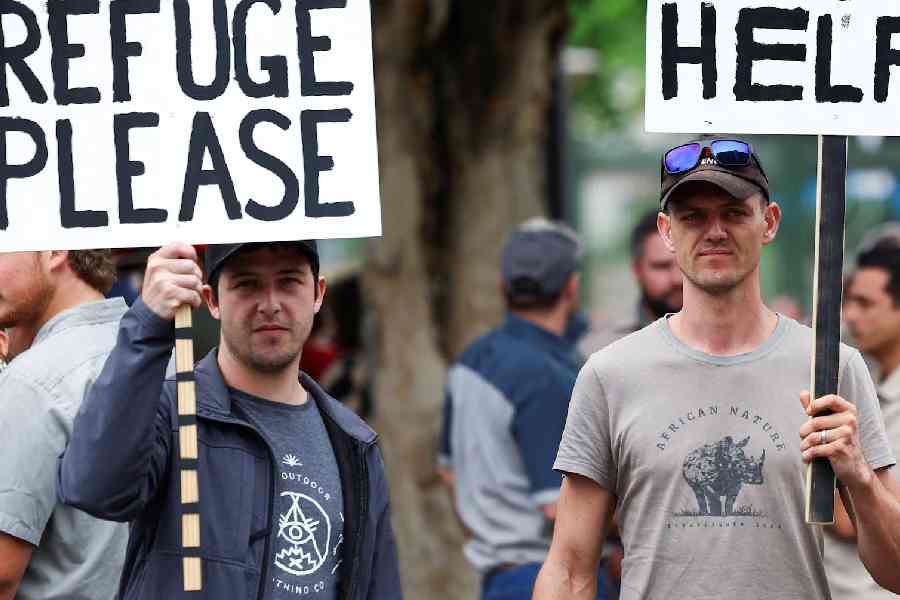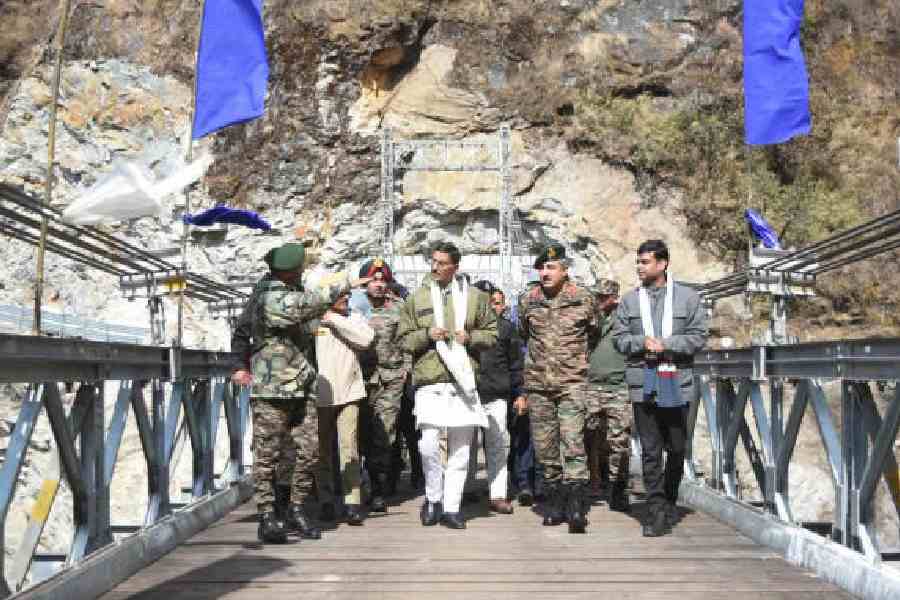 |
| Devyani Khobragade |
Washington, Feb. 9: The diplomatic equivalent of a ticking time bomb has been defused in the Devyani Khobragade case with Jawaharlal Nehru University (JNU) stepping in to reunite her divided family by offering the diplomat’s husband, Aakash Singh Rathore, a job in New Delhi.
For the ministry of external affairs, the offer from JNU is a godsend. South Block has been squirming since Khobragade’s controversial departure from New York in early January because it has condoned protecting three American citizens for almost a month.
In New York, India’s permanent mission to the UN has been in a state of extreme discomfort since Khobragade’s departure because it has been sheltering these US citizens under its roof.
Khobragade’s husband is American, born in New York, and teaches at the University of Pennsylvania. He stayed with his diplomat wife on the mission premises in New York and commuted to his job in Philadelphia, about an hour’s train journey.
Inexplicably, some say undiplomatically, Khobragade chose US nationality for her two children, which was possible because of Rathore. Clearly, the couple did not want their children to grow up as Indians although their mother represented India on the international stage.
These American children, along with Rathore, have continued to stay at the permanent mission to the UN even after Khobragade left for New Delhi to escape the clutches of legal action over her maid’s complaint about salary and other employment problems.
The Indian mission to the UN is a skyscraper in Manhattan’s Turtle Bay, a stone’s throw from the world body’s headquarters. It houses almost all diplomats accredited to the mission and some senior staff of India’s consulate-general in New York. It also accommodates on four floors all the sensitive offices that deal with India’s work in the UN.
Indian establishments abroad are habitually and conventionally lax in security unlike US, Russian or Chinese diplomatic representations where a clear demarcation exists between classified or restricted areas and open sections.
In the US embassy in New Delhi, for example, even the two halves of the outer chamber of the ambassador’s office are designated as classified and non-classified.
For the last one month, the presence of Rathore and his children created an untenable situation where three unsupervised and unaccompanied US citizens had unfettered access to the entire mission building.
What Khobragade left behind in the wake of her hurried departure from New York was a situation that had no precedent in the annals of Indian diplomacy.
The ministry of external affairs has been squirming over its predicament because if it had asked Rathore and his children to vacate their flat in the mission, it was feared that Khobragade’s garrulous and activist father would have kicked up a fuss in public.
Even though Rathore is employed and in a position to support himself and his children, there would have been criticism over their “eviction” in view of the large reservoir of public sympathy for the diplomat who was mistreated by the Americans with her arrest and a strip-search by US marshals.
South Block feared that any argument that Rathore and the two children had no locus standi to stay in the mission once Khobragade’s posting in New York had ended would have carried little weight with an agitated public.
Their prolonged and unauthorised stay in diplomatic accommodation in New York would have been similar to the unauthorised occupation of bungalows in Lutyens Delhi by politicians who lose elections or cease to be ministers, a practice frowned upon by courts.
But with the offer from JNU, Rathore has told friends and acquaintances that he and the children will leave for India in a fortnight. Their decision has brought relief to South Block as well as mission officials in New York.
With Khobragade reuniting with her children and husband, an emotive aspect of the episode which cast a long shadow over Indo-US relations since December will be removed and help efforts to restore normality in bilateral ties.
Khobragade has repeatedly talked about her emotional difficulties in being away from her children since her transfer to India after securing full diplomatic immunity from the US government.
Sympathy for the divided family has been high within India and has even discomfited the Americans who had to publicly defend the actions against her as part of their jobs.
Rathore is an unusual academic and will stand out from most of his peers at JNU if he takes up his post in New Delhi as expected. He is an oenologist who formally qualified in the subject from France. Oenology is the study of wines.
His tenure at JNU, which has a reputation for radical social and political positions, may raise eyebrows. But since he has previous experience in oenology in India, expectations from his work are high.
Rathore has published a book on Indian wines and has served as an adviser to the Indian Grape Processing Board, which is part of the ministry of food processing industries. At the juncture of his diplomat wife’s arrest, Rathore was already teaching a course on “wine philosophy” in Philadelphia.










